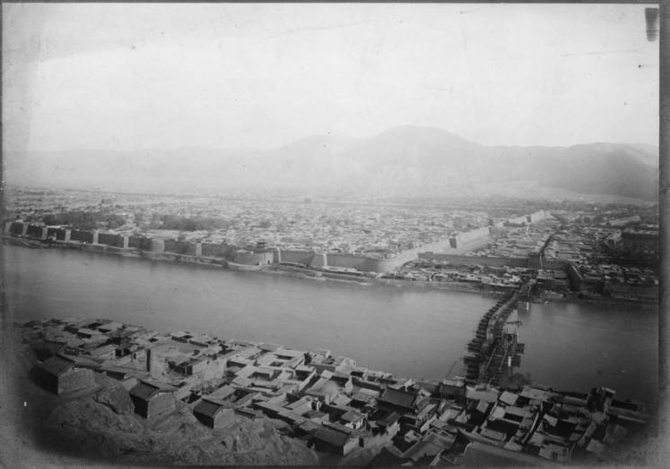|
Yang Dezhi
Yang Dezhi (; January 13, 1911 – October 25, 1994) was a Chinese general and politician. He was senior military officer in the North China (or 5th) Field Army, a veteran of the Korean War and commander in China during the Sino–Vietnamese War. Early life Yang Dezhi was a native of Nanyangqiao in Liling County, Hunan Province, the son of a blacksmith. He worked as a miner at Anyuan Coal Mine near Pingxiang at the age of 16 (1926) and may have heard Mao Zedong speak during the 1927 strike organization efforts. He later joined a force that followed Mao to Changsha in the summer of 1927, and was defeated in that aborted uprising. Joining the CCP in 1928, Yang fought in the early battles around the Jinggang Mountains and was assigned to Lin Biao's 28th Regiment where he participated in battles in Jiangxi and Fujian in 1929. After 1932, Yang commanded the 1st Regiment, 1st Division under Lin and Nie Rongzhen during the Long March. 1930s During the 1930s and 1940s, Yang com ... [...More Info...] [...Related Items...] OR: [Wikipedia] [Google] [Baidu] |
Yang (surname)
Yang (; ) is the transcription of a Chinese family name. It is the sixth most common surname in Mainland China. It is the 16th surname on the '' Hundred Family Surnames'' text. The Yang clan was founded by Boqiao, son of Duke Wu of Jin in the Spring and Autumn Period of the Ji (姬) surname, the surname of the royal family during the Zhou dynasty ) who was enfeoffed in the state of Yang. History The German sociologist Wolfram Eberhard calls Yang the "Monkey Clan", citing the totemistic myth recorded in the '' Soushenji'' and '' Fayuan Zhulin'' that the Yangs living in southwestern Shu (modern Sichuan) were descendants of monkeys. The ''Soushenji'' "reported that in the southwest of Shu there were monkey-like animals whose names were ''jiaguo'' (猳國), ''mahua'' (馬化), or '' jueyuan'' (玃猿). These animals abducted women and sent them back when they became pregnant. If the baby were not accepted, the woman would have to die. Therefore these children were raised and t ... [...More Info...] [...Related Items...] OR: [Wikipedia] [Google] [Baidu] |
Su Zhenhua
Su Zhenhua (; June 2, 1912 – February 7, 1979), born Su Qisheng (蘇七生), was a Chinese Communist general and politician. He fought for the Communists in the Chinese civil war. After the founding of the People's Republic, Su became an admiral in the People's Liberation Army Navy, the Party Secretary of Guizhou province, the First Secretary of Shanghai, and a member of the Politburo of the Chinese Communist Party. Su was born in Pingjiang County, Hunan province. Su joined a guerrilla fighting force in 1926 at age 14, and entered the Communist Youth League three years later. He joined the Red Army in June 1930 and the Communist Party several years later. He participated in the Long March and was instrumental in the Communist takeover of Zunyi. He then served successively in a series of roles as political commissar. In December 1949, following the Communist takeover of Guizhou province, Su became the Party Committee Secretary of Guizhou.徐行,《明報月刊》 (''Ming P ... [...More Info...] [...Related Items...] OR: [Wikipedia] [Google] [Baidu] |
People's Liberation Army At Tiananmen Square Protests Of 1989
During the 1989 Tiananmen Square protests and massacre in Beijing, the Chinese People's Liberation Army (PLA) played a decisive role in enforcing martial law, suppressing the demonstrations by force and upholding the authority of the Chinese Communist Party (CCP). The subject of the Tiananmen protests in general and the military's role in the crackdown remains forbidden from public discussion in China. The killings in Beijing continue to taint the legacies of the party elders, led by Deng Xiaoping, and weigh on the generation of leaders whose careers advanced as their more moderate colleagues were purged or sidelined at the time. Within China, the role of the military in 1989 remains a subject of private discussion within the ranks of the party leadership and PLA. Deployment during initial stages of protests The student movement in Beijing in the spring of 1989 was triggered by the death of former CCP General Secretary Hu Yaobang on April 15. Well before martial law was decl ... [...More Info...] [...Related Items...] OR: [Wikipedia] [Google] [Baidu] |
Zhang Aiping
Zhang Aiping (; born January 9, 1910 in Da County, Sichuan; died July 5, 2003 in Beijing) was a Chinese military leader. Biography Zhang joined the Communist Party of China in 1928 after taking part in a communist-led rural uprising. He participated in the Long March and served as a field commander in the Chinese Red Army, first fighting against Chiang Kai-shek's Kuomintang forces, and later the Imperial Japanese Army in the Second Sino-Japanese War. During World War II Zhang commanded a guerrilla band sent to rescue U.S. flight crews who crash landed in China following the April 1942 Tokyo bombing raid led by Lieutenant Colonel Jimmy Doolittle. After 1949, Zhang was an important builder of the Chinese military forces. He commanded the first People's Liberation Army naval force and served as an army corps commander in the Korean War. Upon his return home he served in a series of significant military and political posts. He was made a General in 1955. Zhang was accused of ... [...More Info...] [...Related Items...] OR: [Wikipedia] [Google] [Baidu] |
Tiananmen Square Protests Of 1989
The Tiananmen Square protests, known in Chinese as the June Fourth Incident (), were student-led demonstrations held in Tiananmen Square, Beijing during 1989. In what is known as the Tiananmen Square Massacre, or in Chinese the June Fourth Clearing () or June Fourth Massacre (), troops armed with assault rifles and accompanied by tanks fired at the demonstrators and those trying to block the military's advance into Tiananmen Square. The protests started on 15 April and were forcibly suppressed on 4 June when the government declared martial law and sent the People's Liberation Army to occupy parts of central Beijing. Estimates of the death toll vary from several hundred to several thousand, with thousands more wounded. The popular national movement inspired by the Beijing protests is sometimes called the '89 Democracy Movement () or the Tiananmen Square Incident (). The protests were precipitated by the death of pro-reform Chinese Communist Party (CCP) general secretary H ... [...More Info...] [...Related Items...] OR: [Wikipedia] [Google] [Baidu] |
Vietnam
Vietnam or Viet Nam ( vi, Việt Nam, ), officially the Socialist Republic of Vietnam,., group="n" is a country in Southeast Asia, at the eastern edge of mainland Southeast Asia, with an area of and population of 96 million, making it the world's sixteenth-most populous country. Vietnam borders China to the north, and Laos and Cambodia to the west. It shares maritime borders with Thailand through the Gulf of Thailand, and the Philippines, Indonesia, and Malaysia through the South China Sea. Its capital is Hanoi and its largest city is Ho Chi Minh City (commonly known as Saigon). Vietnam was inhabited by the Paleolithic age, with states established in the first millennium BC on the Red River Delta in modern-day northern Vietnam. The Han dynasty annexed Northern and Central Vietnam under Chinese rule from 111 BC, until the first dynasty emerged in 939. Successive monarchical dynasties absorbed Chinese influences through Confucianism and Buddhism, and ex ... [...More Info...] [...Related Items...] OR: [Wikipedia] [Google] [Baidu] |
Yunnan
Yunnan , () is a landlocked province in the southwest of the People's Republic of China. The province spans approximately and has a population of 48.3 million (as of 2018). The capital of the province is Kunming. The province borders the Chinese provinces of Guizhou, Sichuan, autonomous regions of Guangxi, and Tibet as well as Southeast Asian countries: Vietnam, Laos, and Myanmar. Yunnan is China's fourth least developed province based on disposable income per capita in 2014. Yunnan is situated in a mountainous area, with high elevations in the northwest and low elevations in the southeast. Most of the population lives in the eastern part of the province. In the west, the altitude can vary from the mountain peaks to river valleys by as much as . Yunnan is rich in natural resources and has the largest diversity of plant life in China. Of the approximately 30,000 species of higher plants in China, Yunnan has perhaps 17,000 or more. Yunnan's reserves of aluminium, lead, zinc a ... [...More Info...] [...Related Items...] OR: [Wikipedia] [Google] [Baidu] |
Kunming Military Region
The Kunming Military Region was a military region of the People's Liberation Army, established in December 1954 or 1955 and disestablished during the 1980s. It was incorporated within the Chengdu Military Region. In the 1954 reorganization that established 13 Military Regions, Xie Fuzhi was given command of the Kunming MR and Qin Jiwei was made deputy commander. Later Qin became commander of the region (1960–67). In March 1967, the Central Intelligence Agency identified some 35 field corps, of which two, the 13th and 14th, were within the Kunming MR. In late December 1978 or early January 1979, ahead of the 1979 Sino-Vietnamese border war, the PLA established the Southern Front to direct the Kunming and Guangzhou Military Regions. Yang Dezhi moved from command of the Wuhan Military Region to become deputy commander of the Southern Front and commander of the Kunming Military Region. In May 1979, the "May 7th cadre school" of the Kunming Military Region became the Independent ... [...More Info...] [...Related Items...] OR: [Wikipedia] [Google] [Baidu] |
Wuhan Military Region
Wuhan (, ; ; ) is the capital of Hubei Province in the People's Republic of China. It is the largest city in Hubei and the most populous city in Central China, with a population of over eleven million, the ninth-most populous Chinese city and one of the nine National Central Cities of China. The name "Wuhan" came from the city's historical origin from the conglomeration of Wuchang, Hankou, and Hanyang, which are collectively known as the "Three Towns of Wuhan" (). Wuhan lies in the eastern Jianghan Plain, at the confluence of the Yangtze river and its largest tributary, the Han River, and is known as "Nine Provinces' Thoroughfare" (). Wuhan has historically served as a busy city port for commerce and trading. Other historical events taking place in Wuhan include the Wuchang Uprising of 1911, which led to the end of 2,000 years of dynastic rule. Wuhan was briefly the capital of China in 1927 under the left wing of the Kuomintang (KMT) government. The city later served as the ... [...More Info...] [...Related Items...] OR: [Wikipedia] [Google] [Baidu] |
Jinan Military Region
The Jinan Military Region was a PLA Military Region located in the east of the People's Republic of China, covering the Shandong and Henan Provinces, which also formed military districts. It appears that Yang Dezhi was one of the first commander of the Jinan MR, from 1958. It was considered a strategic reserve. It includes some of the area previously within the Wuhan Military Region, disbanded in 1985–88. The 5th Air Corps was established in Weifeng, Shandong Province, in 1952, possibly from the disbanding 11th Corps, but was moved to Hangzhou in the Nanjing Military Region by 1954. After 1975 the 46th Army was transferred from Xuzhou, Jiangsu Province to Linyi, Shandong. It was disestablished in 1985. There were previously three Group Armies within the Region, the 20th Group Army at Kaifeng, the 26th Group Army at Weifang, and the 54th in Xinxiang. It previously included the now disbanded 67th Group Army. The Jinan Military Region was disbanded in the reorganisation of 2 ... [...More Info...] [...Related Items...] OR: [Wikipedia] [Google] [Baidu] |
Lanzhou
Lanzhou (, ; ) is the capital and largest city of Gansu Province in Northwest China. Located on the banks of the Yellow River, it is a key regional transportation hub, connecting areas further west by rail to the eastern half of the country. Historically, it has been a major link on the Northern Silk Road and it stands to become a major hub on the New Eurasian Land Bridge. The city is also a center for heavy industry and petrochemical industry. Lanzhou is one of the top 70 major cities in the world by scientific research output as tracked by the Nature Index. The city hosts several research institutions, including, Lanzhou University, Lanzhou University of Technology, Northwest Normal University, Lanzhou Jiaotong University, Gansu University of Chinese Medicine, and Gansu Agricultural University. Notably, Lanzhou University is one of China's prestige universities as a member of the Project 985. History Originally in the territory of the ancient Western Qiangs, ... [...More Info...] [...Related Items...] OR: [Wikipedia] [Google] [Baidu] |
Peng Dehuai
Peng Dehuai (; October 24, 1898November 29, 1974) was a prominent Chinese Communist military leader, who served as China's Defense Minister from 1954 to 1959. Peng was born into a poor peasant family, and received several years of primary education before his family's poverty forced him to suspend his education at the age of ten, and to work for several years as a manual laborer. When he was sixteen, Peng became a professional soldier. Over the next ten years Peng served in the armies of several Hunan-based warlord armies, raising himself from the rank of private second class to major. In 1926, Peng's forces joined the Kuomintang, and Peng was first introduced to communism. Peng participated in the Northern Expedition, and supported Wang Jingwei's attempt to form a left-leaning Kuomintang government based in Wuhan. After Wang was defeated, Peng briefly rejoined Chiang Kai-shek's forces before joining the Chinese Communist Party, allying himself with Mao Zedong and Zhu De. P ... [...More Info...] [...Related Items...] OR: [Wikipedia] [Google] [Baidu] |
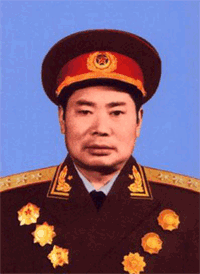
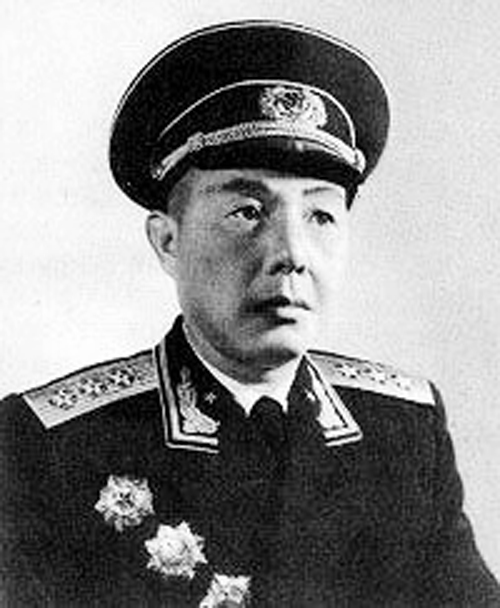
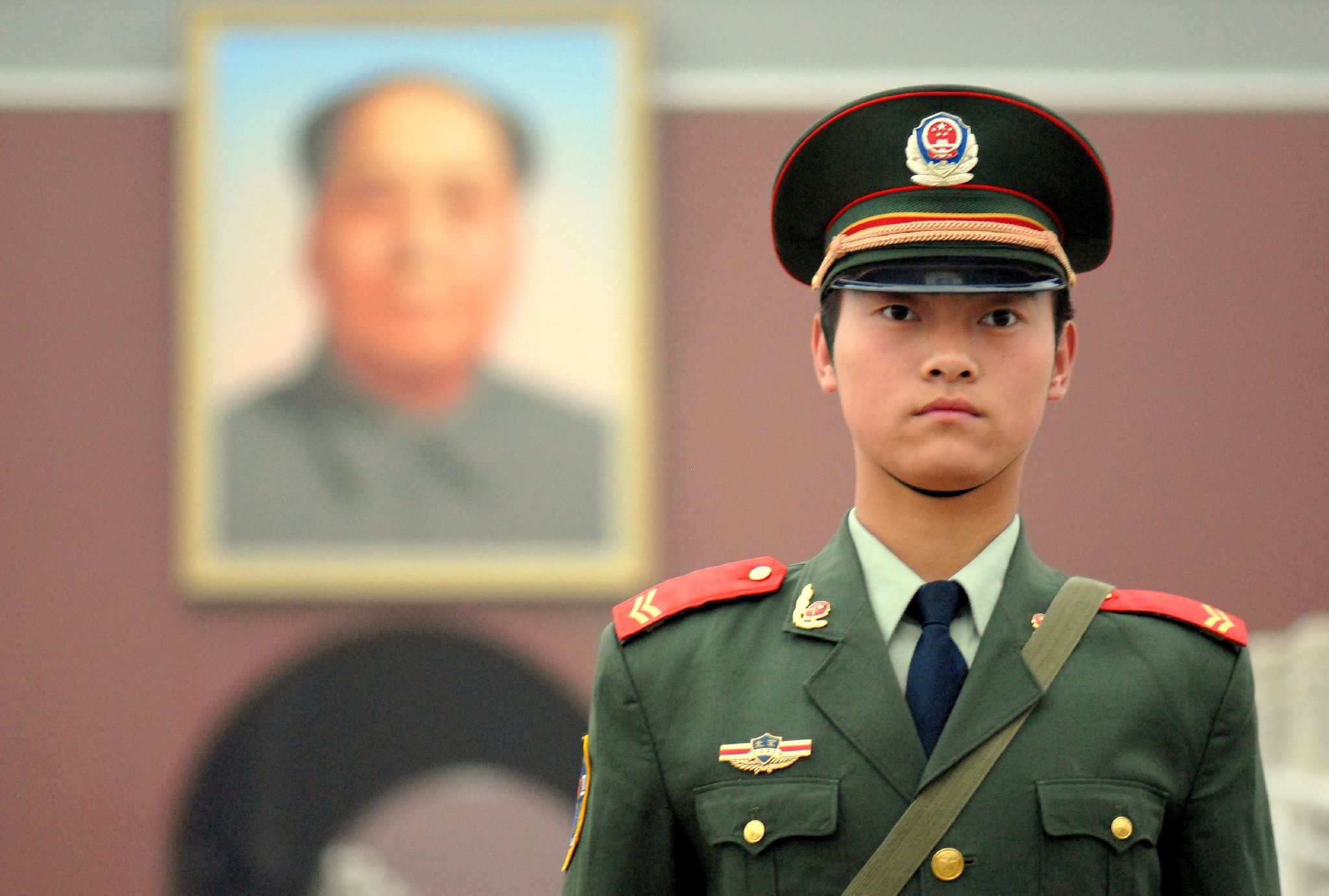
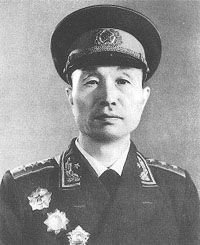
.jpg)

